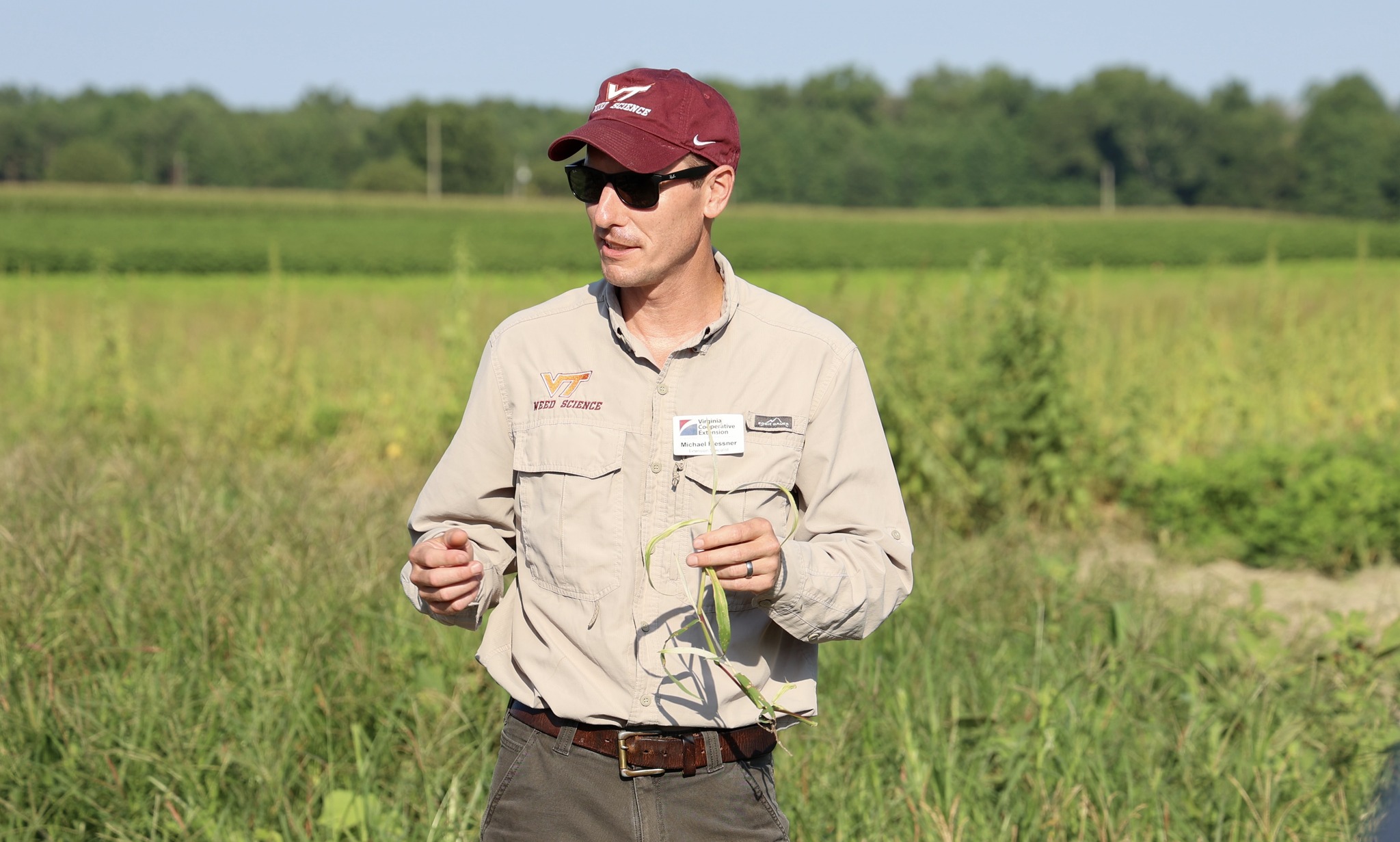Center Spotlights
CALS Research Monthly

Weed Identification Clinic recognizes undesirable plants to recommend resilient control programs
Services to identify weeds and develop targeted and appropriate management strategies are at the fingertips of growers in the commonwealth.
By Julie Shlisky
Visit the Weed Identification Clinic website and you’ll see an alphabetical list of more than 700 weeds common to Virginia. Users can search by name or plant characteristics, and if that fails, local Extension agents can usually identify the common ones.
Identification is the first step. Because weeds have varying life cycles and respond differently to control methods, knowing exactly what you are dealing with is essential for developing a strategy that targets each weed’s particular vulnerability. This becomes especially important given the challenge of herbicide resistance, which often requires a combination of management strategies.
What if a farmer, landscaper, or homeowner is struggling with a weed that defies definition or resists control? Michael Flessner, professor in the School of Plant and Environmental Sciences and Extension weed science specialist says that is not uncommon.
“Your local Extension office can reach out to our team, create a work order, and get it identified,” Flessner said.
After accurate identification, control recommendations are usually the next step.
“Turf, specialty crop, or vegetable setting, we’ll get it routed to the right expert for guidance on a solution,” Flessner added.
The environment where the weed grows and the vegetation surrounding it also factor into management recommendations. A soybean field, golf course, or specialty crop farm may all have the same weed, but options and approaches to control will be very different.
The Weed Identification Clinic provides accessible, statewide support to help Virginia growers quickly and accurately identify troublesome weeds. With expert identification, growers can implement targeted control methods, improve weed management, and prevent further spread of these invasive plants.
While weed management practices will always vary locally based on site-specific conditions and needs, quality guidance remains essential. Flessner helps provide that support not only at the state level, but also nationally through his leadership role in GROW — a collaborative initiative focused on large-acreage crops, where more standardized treatment approaches can be applied.


